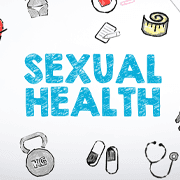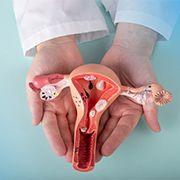Balanced Diet - Definition, Importance, Benefits & Diet Chart
In This Article
Balanced Diet - Definition, Importance, Benefits & Diet Chart
Pooja
Updated on January 28, 2025
Medically verified by Dr. Arya
Fact checked by Prathibha

Wellness
10 minutes
A balanced diet has the required amount of nutrients that are needed for the body to grow, remain healthy and be disease free.
It also helps in providing energy, vitamins and minerals needed for our body.
Want to know more about balanced diet and how it helps?
Join Mykare Health as we explore all about balanced diet and the importance of a balanced diet in daily life.
What is a Balanced Diet ?
A diet which contains the required amount of nutrients needed for our body is termed as a balanced diet. This will help the body to grow, maintain health and to be disease free.
In addition to this, a healthy balanced diet can provide necessary energy requirements, protect against vitamin, minerals and other nutritional deficiencies and boosts the immune system.
What are The Benefits of Eating a Balanced Diet?
Eating a balanced diet can bring a wide range of benefits to your overall health and well-being, including:
- Improved Physical Health
Eating a balanced diet can help maintain a healthy weight, lower the risk of chronic diseases like diabetes, heart disease, and certain cancers, and improve the immune system’s function.
- Increased Energy Levels
A balanced diet gives the body the nutrients that are required to function at its best, leading to increased energy levels and improved productivity.
- Better Digestion
A balanced diet that includes plenty of fibre can improve digestion, reduce constipation and bloating, and improve gut health.
- Stronger Bones And Teeth
A diet that includes adequate nutrients and minerals like calcium, magnesium, and vitamin D helps build and maintain strong bones and teeth.
- Improved Skin Health
Eating a balanced diet that involves plenty of fruits, vegetables, and healthy fats can improve skin health, reducing the risk of acne, premature ageing, and other skin conditions.
- Improved Mental Health
Studies have shown that a balanced diet can positively impact mental health, reducing the risk of depression, anxiety, and cognitive decline.
A balanced meal helps provide the body with all the nutrients it needs to maintain normal growth and repair functions.
Benefits of Healthy Eating for Adults
A healthy diet helps boost immunity, reduces the risk of developing Type 2 Diabetes, cardiovascular diseases, and some cancers, maintains a healthy weight, and helps recover quickly from diseases and trauma.
Benefits of Healthy Eating for Children
A healthy diet helps strengthen bones, supports brain development, boosts immunity, and regulates growth functions.
 10mint
10mintSexual Health Matters: How To Maintain Your Sexual Health ?
 10mint
10mintYour Guide to Sexual Health Screening and Preventive Measures
 10 mints
10 mintsSTDs in Women: Comprehensive Guide on Symptoms and Treatments
Get a Callback Now
7 Essential Components of A Balanced Diet
Proteins, carbohydrates, fats or lipids, micronutrients such as vitamins and minerals, and water are the essential components of a well-balanced diet.
Carbohydrates - Carbohydrates provide you with energy, which should constitute 50- 60% of your diet. Though it forms a significant diet component, you should not treat all carbs equally.
Sources of healthy carbs are:
- Whole grains like Oats, Quinoa
- Whole wheat, Dahlia
- Legumes
- Millets like ragi, bajra, barley
- Vegetables
Protein - Protein helps you build muscles and develops skin and hair. It should constitute 10-12% of your diet.
Sources of protein are -
- Legumes and beans, soyabean
- Poultry-Chicken, Turkey
- Seafood- Fish, Crab, Prawn, Lobster
- Eggs
- Lean meat- Lamb, Beef, Pork
- Nuts and Seeds
- Greek yoghurt
Fat - It is a misconception that fats are bad for your health. It would be best if you chose healthy fats as fats help you maintain your body temperature and help absorb fat-soluble vitamins A, D, E & K.
Sources of healthy fat are -
- Avocados
- Nuts
- Seeds
- Extra virgin Olive oil
- Fatty fish- Salmon, Sardines, Mackerel, Herring
Vitamins - Though there are 13 essential vitamins, you should take vitamins A, C, B, and D measures.
Sources of vitamins are -
- Fruits
- Vegetables
- Poultry
- Seeds
- Nuts
Minerals - Minerals help release energy from the food you take and promote the growth of organs. Some essential minerals are iron, calcium, potassium, iodine, and sodium.
Sources of minerals are -
- Fish
- Meat
- Beans
- Cereals
- Nuts & Seeds
Fibre - Fibre helps in digestion and also helps in lowering your cholesterol levels and controlling sugar levels.
Sources of fibre are -
- Oats, dahlia, Quinoa and Brown rice
- Beans
- Whole grains
- Nuts & seeds
Water - You should take at least eight glasses of water as it hydrates your body and is used in body functions.
Foods to Avoid For a Healthy Balanced Diet
Avoid the below foods for a healthy life :
- Red meat
- Refined grains (cereals) like maida, white bread, semiya, noodles, pasta
- Trans fat, butter, cheese
- Added sugar
- Pastry
- Processed foods
7 Days Balanced Diet Chart
Here is a sample 7-days balanced diet chart. Please note that each body’s requirements are different so contact your dietician to get a customised balanced diet chart.
| Days* | **Breakfast** | **Launch** | **Dinner** | *Snacks |
| ----- | --------- | -------- | -------- | ------- |
| Day 1 | Bowl of oats + Glass of milk | Chapathi + Dal + Veggies + Curd | Brown rice + Dal + Green salad | Nuts/Fruit/Seeds/Smoothie/Yoghurt |
| Day 2 | Omelette stuffed with veggies + Glass of milk | Brown rice + Chicken/Paneer curry + Salad | 2 multigrain Chapathi + Dal + Salad | Smoothie/ Nuts/Fruit/Seeds/Yogurt |
| Day 3 | Wheat Upma + Fruit | 2 Chapathi + Dal + Veggies + Curd | Brown rice + Dal + Salad | Fruit/Nuts/Seeds/ Smoothie/Yoghurt |
| Day 4 | Moong dal + Glass of milk | Brown rice + Salmon fish curry/ Soya Bean + Salad | 2 Roti + Dal + Salad | Fruit/Nuts/ Seeds/Smoothie/Yoghurt |
| Day 5 | Besan Chilla + Glass of milk | 2 Jowar Roti + Dal + Veggies + Salad | Brown rice + Dal + Salad | Fruit/Nuts/Seeds/Smoothie/Yoghurt |
| Day 6 | 2 Brown bread with an omelette + Glass of milk | Brown rice + Dal + Veggies + Salad | 2 Multigrain roti + Dal + Salad | Fruit/Nuts/Seeds/Smoothie/Yoghurt |
| Day 7 | Poha + Glass of milk | 2 Roti + Mixed vegetable + Roasted Chicken + Dal|Brown rice + Dal + Salad | Fruits/Nuts/Seeds/Smoothie/Yoghurt |
A balanced diet helps in meeting the nutritional demands of the body and prevent malnutrition
It keep up energy levels and maintain normal body functions
Boost the immune system and optimise cell repair
Prevent lifestyle diseases such as Type 2 Diabetes, Cardiovascular diseases, and some cancers
Strengthen bones, muscles, skin, teeth, and eyes
Help support healthy pregnancies
Planning a balanced diet also involves limiting the intake of sugars or salt in patients suffering from diabetes or hypertension.

